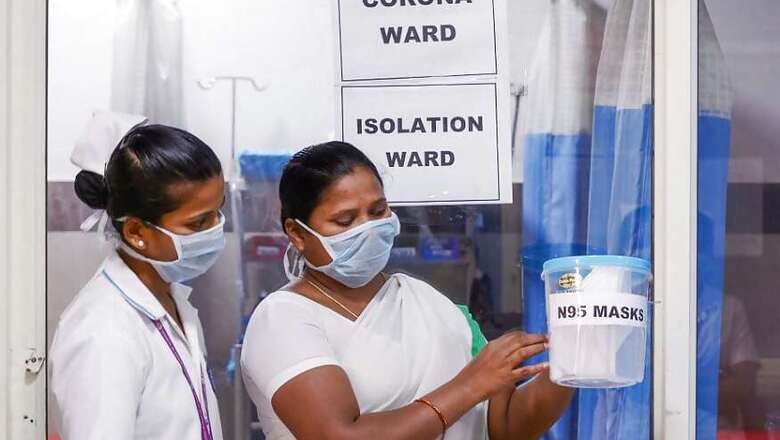
views
New Delhi: From bracing up for challenges fighting off the 2019 Coronavirus, named 2019-n CoV, to battling fake news, the World Health Organisation (WHO) has its hands full.
As bizarre theories do the rounds of social media about the outbreak of the disease, the WHO has issued a warning against misinformation and the harm it can cause.
The reasons are obvious. Take some instances. A video first did the rounds of a Chinese woman having bat soup and linked it to the outbreak. However, it seems the video emerged from Western Pacific Ocean and not China and was old.
Another WhatsApp message doing the rounds asked readers to avoid processed cold drinks, ice creams and milkshakes. This is again completely unrelated to the novel Coronavirus of Wuhan.
Among the theories being floated, this one takes the cake. A claim was that the virus was part of China's covert biological weapons programme and may have been leaked from the Wuhan Institute of Virology!
Another claim was that of Russia’s Channel One, according to which the virus was linked to US President Donald Trump.
The list doesn’t end here. Another claim advises users in the Philippines to “keep your throat moist, avoid spicy food and load up on vitamin C”. The information is said to be from the country's department of health but is completely unrelated to 2019-nCoV.
So what are the facts? Here is what the WHO says:
• People receiving packages from China are not at risk of contracting the new Coronavirus. Coronaviruses do not survive long on objects such as letters or packages.
• At present, there is no evidence that companion animals/pets such as dogs or cats can be infected with the new Coronavirus. However, it is always a good idea to wash your hands with soap and water after contact with pets. This protects you against various common bacteria.
• Vaccines against pneumonia such as pneumococcal vaccine and Haemophilus influenza type B (Hib) vaccine do not provide protection against the new Coronavirus. The virus is so new and different that it needs its own vaccine. Researchers are trying to develop a vaccine against 2019-nCoV and WHO is supporting their efforts.
• There is no evidence that regularly rinsing the nose with saline has protected people from infection with the new Coronavirus. There is some limited evidence that regularly rinsing nose with saline can help people recover more quickly from common cold.
• There is no evidence that using mouthwash will protect you from infection with the new Coronavirus.
• Garlic is a healthy food that may have some antimicrobial properties. However, there is no evidence from the current outbreak that eating garlic has protected people from the new Coronavirus.
• Sesame oil does not kill the new Coronavirus. There are some chemical disinfectants that can kill the 2019-nCoV on surfaces. These include bleach/chlorine-based disinfectants, either solvents, 75% ethanol, peracetic acid and chloroform.
• However, they have little or no impact on the virus if you put them on the skin or under your nose. It can even be dangerous to put these chemicals on your skin.
• People of all ages can be infected by the new Coronavirus. Older people and people with pre-existing medical conditions (such as asthma, diabetes, heart disease) appear to be more vulnerable to becoming severely ill with the virus.
WHO advises people of all ages to take steps to protect themselves from the virus by following good hand hygiene and good respiratory hygiene and also not to fall for fake claims, videos, messages and misconceptions.
India, meanwhile, had its own share of confusion with the Ministry of AYUSH issuing advisories to prevent and cure diseases like Coronavirus.
There were two advisories issued that give a list of Unani medicines 'useful in symptomatic management of Coronavirus infection’.
After people pointed out that these claims were misleading, a clarification was also issued by the government saying the two advisories were only indicating general precautionary measures to be followed in the context of such viral diseases and that a section of the media and professional medical bodies had tried to create distrust and malign the image of AYUSH systems.














Comments
0 comment